

the cornflower

UQ CENTRE FOR MND RESEARCH OPEN DAY
LIVING WITH MND - RON’S STORY
NQ WALKS TO DEFEAT MND
STAFF PROFILE - MEET HOLLY GAME ON FOR MND






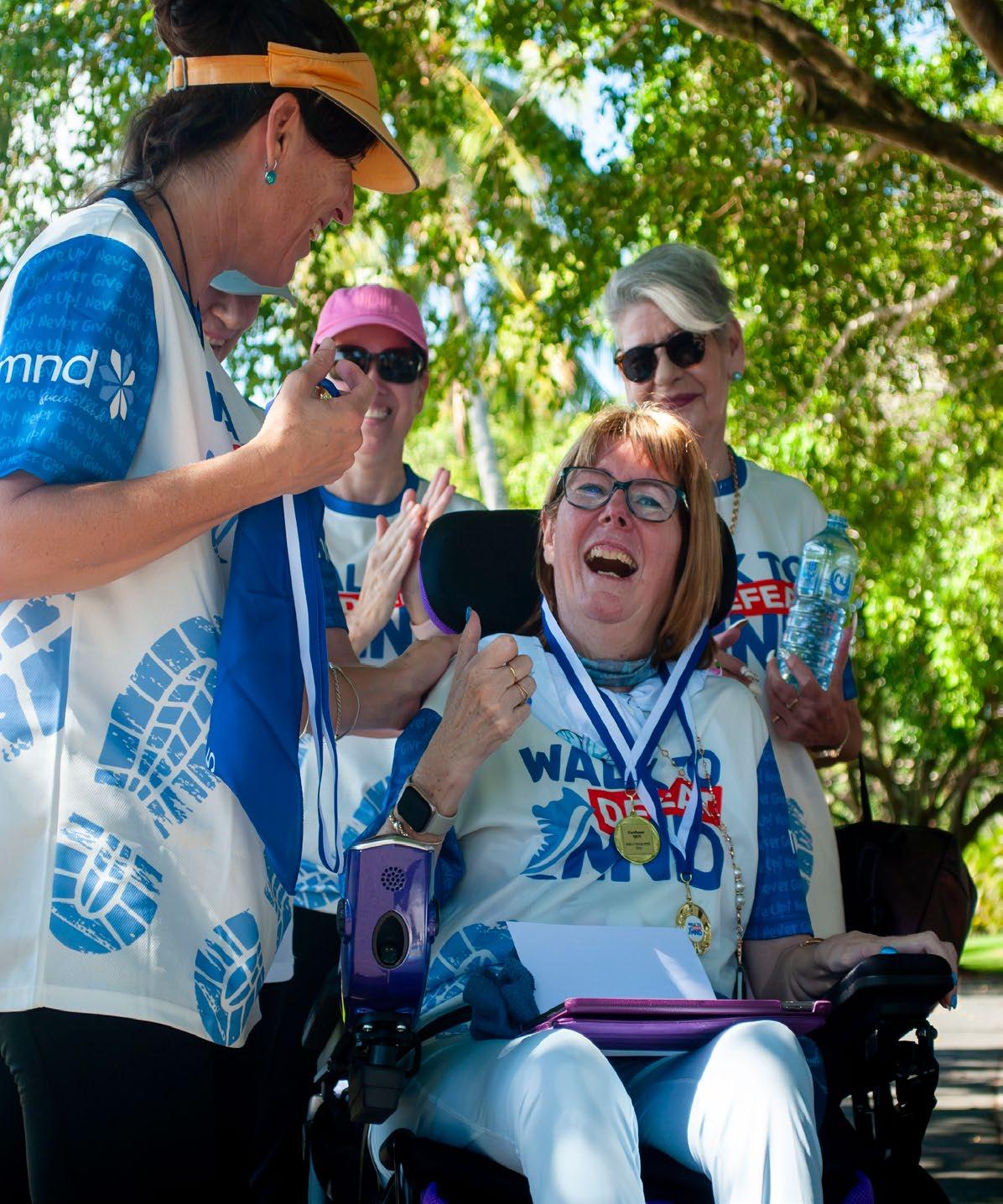
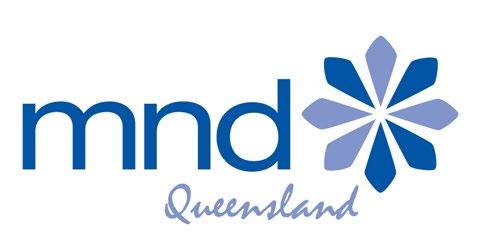
AGM HELD & NEW MANGEMENT COMMITTEE MEMBERS ELECTED
At MND Queensland’s recent Annual General Meeting, we were excited to welcome four new members to our Management Committee — Dr Antony Winkel, Dr Hervey Lau, Chris Poole and Mark Kennerley. Each brings a wealth of experience, fresh energy, and a deep commitment to our mission.
Dr Antony Winkel brings exceptional clinical expertise as a neurologist and leader of the dedicated MND Clinic at Sunshine Coast University Hospital, along with his contributions to national MND clinical guidelines and mentoring of future clinicians. Dr Hervey Lau is a dual-specialist physician in Respiratory, Sleep, and General Medicine and currently serves as the Director of Thoracic Medicine and Director of Sleep Medicine at the Royal Brisbane and Women’s Hospital (RBWH). He co-chairs the RBWH multidisciplinary MND clinic — Queensland’s largest — alongside neurologist Dr Robert Henderson. Chris is a senior leader and digital health specialist whose career spans hospitals, community health, and digital health. Known for understanding the real challenges facing healthcare organisations, he has helped turn around and scale providers and solutions to better meet the needs of patients and communities. Mark adds decades of commercial, financial, and governance experience, offering steady, strategic leadership to guide us through opportunities and challenges alike.
They join our dedicated continuing members — Diana, Keith, Katie and Paul — creating a strong, diverse team whose combined skills span clinical leadership, governance, mnd expertise, lived experience and community engagement. Together, they’ll guide MND Queensland’s strategic direction and ensure we remain a powerful voice and source of support for Queenslanders impacted by MND.
SHOP WITH PURPOSE - GET YOUR MND MERCHANDISE ONLINE
Looking for a gift, card or something practical? MND Queensland’s fundraising merchandise has something for everyone — and every purchase helps make a difference.
Make a bold statement with our F*CK MND t-shirts, stay sun-safe in a branded trucker cap, keep a tote bag handy for shopping, or send a beautiful cornflower greeting card. These items look great, carry a powerful message, and spark conversations that raise awareness of MND.
Your purchase helps fund essential support, provide vital equipment, and bring hope to Queenslanders living with MND.
Shop online at www.mndqld.org.au/store or call 07 3372 9004. We can also supply merchandise on consignment for your fundraiser or workplace.
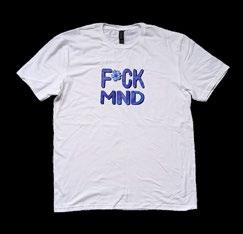
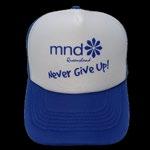
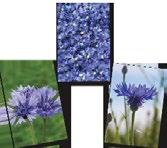
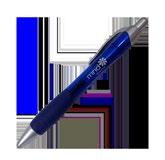
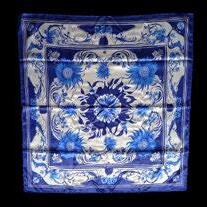
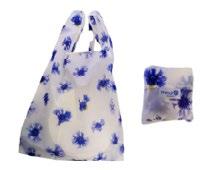
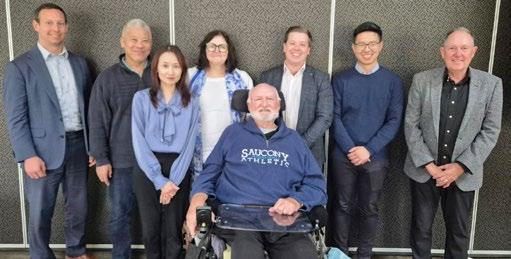
CONTACT & SOCIAL MEDIA
MND Queensland
ABN: 75 990 922 939
Phone: 1800 777 175 or 07 3372 9004
Email: info@mndqld.org.au
Web: www.mndqld.org.au
Street: 1/89 Factory Road, OXLEY QLD 4075
Post: PO Box 470, INALA QLD 4077
Facebook: www.facebook.com/MNDQLD
Instagram: @mndqld
LinkedIn: www.linkedin.com/company/mndqld
YouTube: www.youtube.com/@mndqld
provider
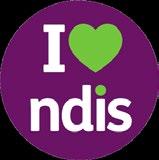
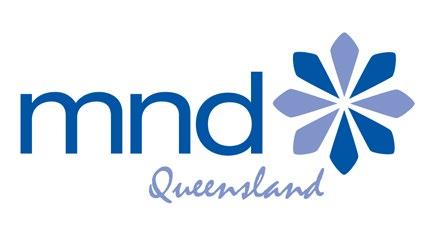
Pictured (L-R): Dr Antony Winkel, Paul King Koi, Katie Choi, Diana Melham, Keith Malpress , Chris Poole, Dr Hervey Lau & Mark Kennerley.

This year has felt like we’re taking MND Queensland on the road – literally. Our aim has been simple: reach as many Queenslanders as we can and give more people than ever a chance to rally against motor neurone disease. That means stepping well outside the metropolitan bubble and waving the MND flag in towns and regions that haven’t seen us before. The response has been nothing short of extraordinary.
The Walk to Defeat MND series is the clearest sign of that shift. Already in 2025 we’ve held walks on the Gold Coast, Brisbane, Townsville, Cairns and Bundaberg. Each walk has been its own festival: sausages sizzling, kids and dogs running around, and more Walk to Defeat T-shirts than you can count. We’re still on the move, with Hervey Bay, Toowoomba, the Sunshine Coast and Redcliffe all on the calendar before year’s end. Attendance numbers have smashed expectations everywhere we’ve been, with first timers walking alongside seasoned supporters and whole families pushing prams or wheelchairs together. By December we’re on track to see more people walking to defeat MND in Queensland than ever before. Our staff and volunteers have spent countless hours on the road –often thousands of kilometres – bringing that sense of community to where people live, because it’s important that Queenslanders don’t have to travel to Brisbane to feel supported.
That sense of ownership isn’t limited to our own events. The community has taken fundraising into its own hands in ways that continually surprise and inspire us. There have been home grown BBQs, high tea parties, rugby league fans coming together for a Long Lunch and MND Round in Runaway Bay, runners tackling huge distances and kids collecting cans under the Containers for Change scheme. Supporters have even used our round up app to donate the spare change from their everyday purchases – a modern twist on dropping coins into a charity tin. Individuals have held birthday fundraisers instead of receiving gifts. We don’t track these activities to boast about the totals – though some have been impressive – but to remind ourselves that every dollar truly does count. Knowing that a neighbour has baked scones or a work team has fired up the grill for us is as heartening as any grant or corporate cheque.
That collective spirit was palpable at two very special events this year. In March, we were honoured to be supported by our community at the Parliamentary Friends of MND event at Parliament House. Having our supporters beside us at Parliament House as we called for better funding and visibility made our advocacy more than a policy discussion; it was a living, breathing representation of the people affected by these decisions. Then on
Global MND Awareness Day, we gathered for our Cornflowers and Butterflies event. It was unlike anything we’d done before: a mix of ceremony and reflection where we planted blue cornflowers in honour of those living with or lost to MND and released live butterflies to symbolise hope. People leaned on one another, laughed and cried together, and left feeling both connected and uplifted. Many told us it was “exactly what we needed”.
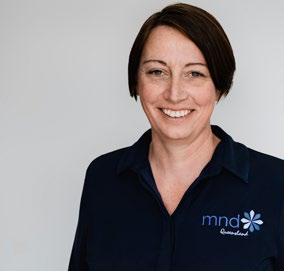
When we say “community,” we also mean the hundreds of clients and carers we work with across the state. Your support – whether through walks, donations or simply turning up – has allowed us to keep innovating. One of the most significant outcomes is the launch of our psychology service. For the first time, people living with MND and their carers can access tailored psychological support through MND Queensland, with no out of pocket fees thanks to community contributions. It has been a long held dream to address the emotional and mental load of MND alongside the physical, and we’re humbled that we can now offer it. Likewise, the Carers Program we introduced this year acknowledges the unique challenges faced by those who support loved ones with MND. It offers connection, advice, resources, education, respite and support – and we know from early feedback that it’s making a difference.
All of this progress rests on a simple truth: we feel embraced by our community. Whether we’re celebrating a walk’s success in Townsville, comforting someone at an awareness day ceremony or sitting down with carers in a new support group, we are constantly reminded that we are part of something bigger than ourselves. That sense of togetherness fuels us to keep pushing – to travel further, to offer more services, to lobby harder for the rights of people with MND. We’re determined to stand up to this awful disease and demand that those living with it are seen and supported in the way they deserve. At the same time, we remain deeply grateful and humble. We know we’re entrusted with your donations, your stories and your hopes, and we don’t take that trust lightly. As the state’s leading provider of MND supports, we promise to honour it by doing everything we can to make life better for Queenslanders impacted by MND – until the day this disease is no longer part of our lives.

MND CARE
At MND Queensland, we live by a simple truth. Until there is a cure for Motor Neurone Disease, there is care. Every day our dedicated team supports people living with MND and their families, providing expert, compassionate services to help them live as well as possible for as long as possible.
But care is more than the support we provide in clinics, homes and communities. It is also about shaping the future of MND care, driving innovation and making sure people facing the disease today benefit from the very latest in knowledge, research and technology. Our clinicians are proud to contribute their frontline expertise to the development of the Australian MND Clinical Guidelines, bringing the realworld knowledge that comes from working with people living with MND every single day. We deliver education sessions for health professionals and family carers, and present at conferences to share insights and practical strategies that can improve the experience of living with MND.
Innovation also means identifying challenges and working on solutions that make a real difference. One example is the Communicating Point Project, national research we are leading on behalf of MND Australia. This important work, led by our speech pathologist Holly, is focused on improving resources and tools for people with swallowing difficulties, helping them maintain their voice for as long as possible.
Another example is our Game On with MND project (another project we’ve delivered on behalf of MNDA), which is all about preserving something that is often overlooked in health care conversations but is absolutely essential to quality of life: fun. Gaming is a huge part of Australian life, with 81 percent of Australians playing games on a device, whether that is a phone, tablet, computer or console. For people with MND, gaming can be more than entertainment. It can offer a sense of achievement, boost mood, provide mental stimulation, and create social connection, whether through online communities or playing with family and friends.
As the disease progresses, physical changes can make it harder to play in traditional ways,
but technology is constantly evolving to bridge that gap. Adaptive controllers, eyetracking systems, switch-based setups and ingame accessibility features such as remappable controls and subtitles can make it possible for people to keep playing. Through Game On with MND we have spoken with gamers living with the disease to understand their experiences, challenges and creative solutions.
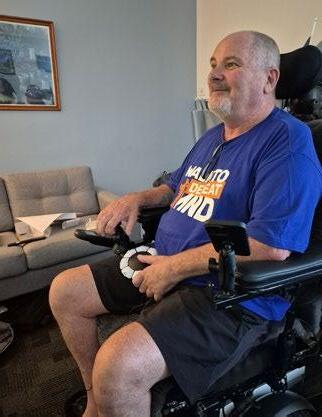
We are incredibly proud to have developed three dedicated resources as part of this project — one for people living with MND, one for health professionals, and one for game developers. Each resource offers practical strategies and information tailored to its audience, aiming to make gaming more inclusive and accessible. You can explore the gamers’ resource by scanning the QR code on this page.
Care is not only about meeting essential needs such as mobility, communication and daily living. It is also about making life worth living. For some, that might mean keeping up with a favourite hobby, continuing to connect with friends, or simply doing something that brings joy and a sense of normality. Projects like the Communicating Point Grant and Game On with MND show that care is not static. It grows and adapts, just as the needs of people with MND do.
Until there is a cure, there is care, and at MND Queensland, that care includes not just the serious side of clinical expertise but also the joyful side of living well. We are here to help people with MND keep their connections, their passions and their fun for as long as possible.
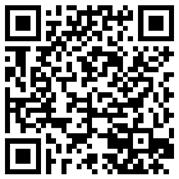
Pictured: Gaming lover, Rob who lives with MND
STEPPING INTO THE FUTURE OF MND RESEARCH: UQ CENTRE FOR MND RESEARCH OPEN
DAY
On Friday 4 July, a team from MND Queensland had the privilege of attending the University of Queensland (UQ) Centre for MND Research Open Day - a compelling and inspiring showcase of the cutting-edge work being done to better understand, treat, and hopefully cure motor neurone disease.
The Centre represents a powerful collaboration between researchers across multiple disciplines and UQ-affiliated institutions. These include the School of Biomedical Sciences, Institute for Molecular Bioscience, Centre for Advanced Imaging, Australian Institute for Bioengineering and Nanotechnology, and the Faculty of Engineering, Architecture and Information Technology, among others. Together, they form a research network working across the full translational pipeline — from lab-based studies through to clinical trials — with the shared mission of improving outcomes for people living with MND.
Among the day’s highlights was a presentation by Professor Pamela McCombe, who, along with Dr Rob Henderson, leads both clinical and research work at the Royal Brisbane and Women’s Hospital and UQ. Professor McCombe provided valuable insights into the complexities of clinical trials, particularly the high cost and stringent documentation requirements needed to meet regulatory standards set by agencies like the FDA and TGA.
Importantly, she emphasised that even trials which don’t deliver a successful result can still move the field forward. Well-designed studies, whether they prove or disprove a hypothesis, contribute vital knowledge that sharpens future research and avoids repeating past dead ends.
After the morning’s presentations, we toured several state-of-the-art laboratories where researchers generously shared the innovative projects they’re working on.
One of the most fascinating areas involved turning donated tissue samples — such as skin and muscle cells from people living with MND — into stem cells. These stem cells are then transformed into muscle fibres, and organoids that resemble tiny brains or spinal cords.
These lab-grown models allow scientists to observe how MND-related changes unfold in

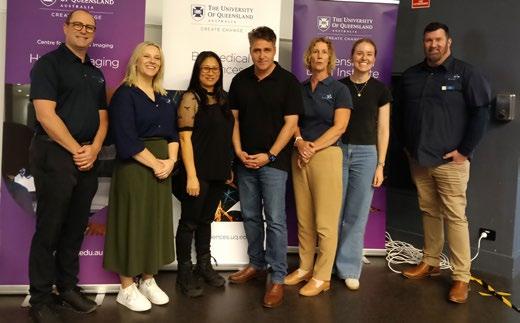
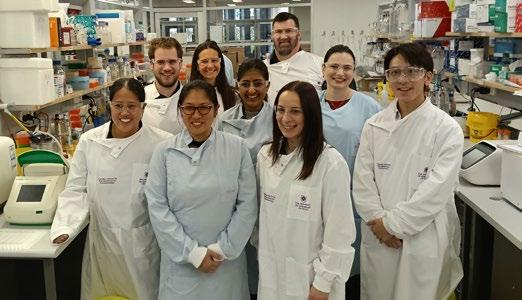
a human context, providing insights that aren’t always possible with animal models. While traditional research often relies on genetically modified mice that are made to exhibit MNDlike symptoms, these human-derived systems can reflect real disease features through the genetic profile of the donor or by introducing specific disease triggers. This offers a more accurate and ethically sound platform for testing potential therapies.
The day also highlighted some of the practical innovations being explored to improve quality of life for people living with MND. One particularly exciting project involved wearable exoskeletons designed to support mobility. These robotic-assisted devices aim to help people walk more safely and for longer, giving them greater independence and delaying the need for more intensive care supports.
The open day was an incredible opportunity to witness, up close, the extraordinary science happening in our own backyard. We left not only inspired, but more deeply informed about the many avenues being explored.
You can find out more, including how to get involved in MND research projects by visiting https://biomedical-sciences.uq.edu.au/uqcentre-for-mnd-research
Pictured: The MND QLD team with Shyuan Ngo and Frederik Stein.
Pictured: A tour group in Assoc Prof Shyuan Ngo’s lab at UQ

LIVING WITH MND - RON’S STORY
Ron, 79, lives in Buderim with his husband Narin. On the 4th of February this year, Ron was given the news that nobody wants to hear, that he has Motor Neurone Disease.
Born in 1946 and adopted at an early age, Ron says he had “the best adoptive parents that you could hope for,” though they were “a bit conservative, as most people were back in 1946.” His childhood was spent between Rockhampton and Townsville, following his father’s insurance career.
Over the years, Ron has worked in “a multitude of jobs, mostly people… people sort of jobs,” from retail and sales to hospitality, where he spent the final 20 years of his work life in Brisbane. He also hosted international students through home stay programs. After high school, Ron joined the old CMF — the Citizens Military Force (Army Reserve) — serving in the service corps, “which involved driving trucks. I love driving… I was in the service core… supporting the troops and the frontline with food and whatever else they need.”
A self-described car lover, Ron says losing the ability to drive has been one of the toughest changes about living with MND. “It’s one of my best joys taken away or two, two of them right, which is a bit sad.” Walking on the beach was another joy — something else he misses. “I used to love walking on the beach and even around the village here. It’s about a kilometre around the circuit of the village.”
Ron first met Narin in Chiang Mai, Thailand, in 2013. They’ve been together 11 years and married for five. Ron speaks “a tiny bit of Thai” while Narin’s family speaks no English, but they get along famously. “There’s a lot of smiling and laughing, but not much conversation. But they’re lovely, lovely people… humble, self-sufficient farming people.”
Ron first noticed something was wrong while walking on the beach at Warana. “The right toe kept digging into the sand and I thought ‘this is annoying.’” His GP suspected drop foot and sent him for scans. At the time, Ron was about to travel to Thailand. “I didn’t hear anything
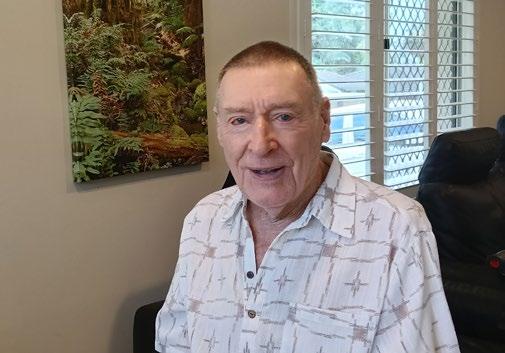
from her and I thought, ‘oh, that’s good.’” Months later, he began losing grip in his left thumb. By November 2024, after returning from Thailand, his GP referred him to a neurosurgeon. Instead, he was redirected to the neurology team at Sunshine Coast University Hospital. During his appointment, Ron was wearing shorts and the neurologist, (Dr Antony Winkel our new Management Committee member you would have read about earlier in this edition) noticed involuntary, visible twitches in Ron’s leg “He said, ‘I’m sorry to tell you Ron, but I think I’ve just diagnosed you with MND.’ “I sort of broke down.” Ron said of his reaction to hearing the news.
Before his diagnosis, Ron’s only awareness of MND was from a news story about Neale Daniher. “I thought, ‘oh, that’s horrible.’ And that was the first I heard of it.”
Ron’s MND symptoms are progressing, he told us “The main thing that’s happening with me is loss of power in my right foot and right knee. And my left hand is clawing. So walking is very restricted. I use a walker even in the house.”
In his village, Ron says the community has been “very helpful and supportive. It’s probably made people even closer.” Still, falls are a challenge. “Twice in the last two months we’ve had the ambulance come to get me up… So now I’ve just said ‘look just call the Ambos.’”
Ron connected with MND Queensland very early on in his MND journey. “The neurologists suggested I get in touch with MND Queensland. I got in touch and Shelley came out and we had a meeting which was great… She said, ‘We’re with you every step of the

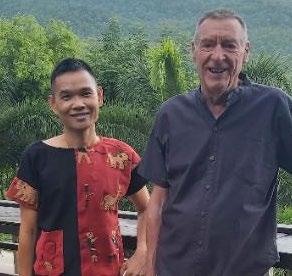
way. If you need us.’ So I valued her input.” MND Queensland has provided equipment including “the toilet raising thingy and safety bars and a wheelchair.” Ron says, “They’re very quick, very quick and supportive.” He also enjoyed sessions with physiotherapist Dan. Ron has also completed voice banking with
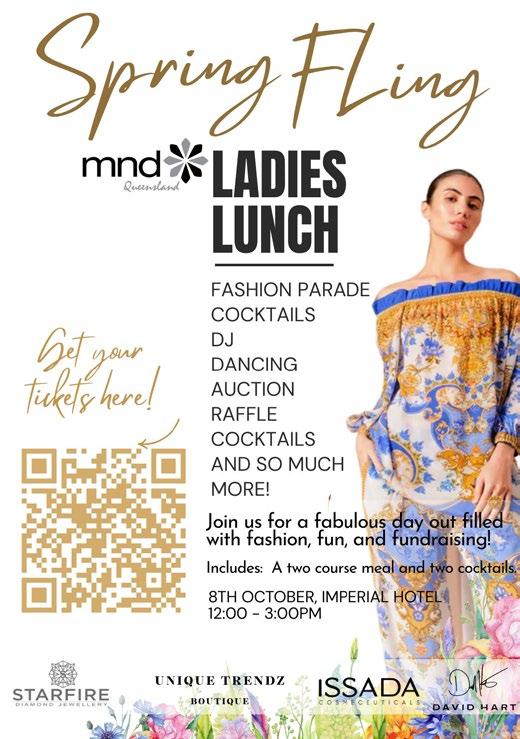
Helen so that he can rest assured that if he loses the ability to speak he can continue to communicate with the use of technology and still sound like himself.
Ron has volunteered for clinical trials. “I’ve heard nothing back yet.” When asked what else he’d like to see change about the MND landscape Ron said “I think the government should be putting more money into it as well. It seems to be on the increase.”
Well aware that MND Queensland receives no government funding and is a charity, we asked Ron what he’d say to our supporters. “Well, I think if anybody can support them, financially, it’ll be a great boon for the service. I suppose every little bit helps, doesn’t it?” he replied.
When asked what advice he’d give to someone newly diagnosed with MND, Ron responded “Just seek support from MND Queensland. They’re good guys. And don’t hesitate to do what you enjoy doing now… because time is of the essence.”
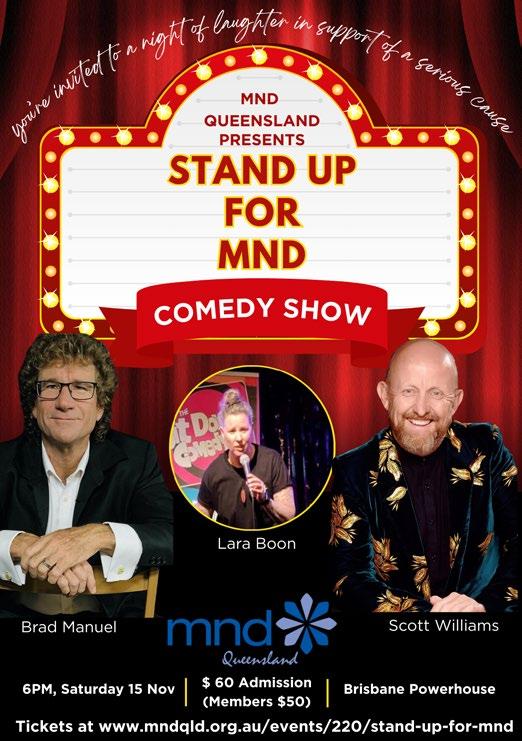
Pictured: Ron and his husband, Narin on a visit back to Thailand.

NORTH QUEENSLAND WALKS TO DEFEAT MND
In two cities, on two special days, hundreds of Queenslanders came together to walk in support of people living with Motor Neurone Disease.
Townsville: A Day to Remember
Townsville turned on perfect weather as 185 people gathered for their first Walk to Defeat MND. Under sunny skies, walkers, rollers and supporters created an atmosphere of warmth and solidarity — and raised an incredible $32,000, more than triple the original goal.
There were superhero capes, homemade signs, and plenty of wagging tails, but it was the spirit of the community that truly stood out. A huge thank you goes to Townsville State High School for their equipment and enthusiastic student volunteers, the United States Air Force for lending their support, and to local businesses including The Ville and Mary Who? Bookshop for donating raffle prizes.
Every person who registered, donated, volunteered or simply showed up played a vital role in ensuring people with MND have access to the care and support they need.
Cairns: You’ve Done It Again
Just a few weeks later, Cairns welcomed 186 walkers to the Esplanade for their second Walk to Defeat MND event — narrowly beating Townsville by a single registration. With clear skies and strong community energy, the Cairns walk raised more than $24,000, with donations still coming in.
Sunbird Home Care kept participants fuelled and sun-safe with a sausage sizzle and giveaways, while Coral Coast Caterers provided tents, tables, and chairs. The day ended on a high with generous raffle prizes from Gypsett, Body and Beauty Unlimited, Sealink, Dan Murphy’s, Zig Zag Hair Design, High Tide Café and others.
The Cairns community once again showed their deep commitment to the cause, with heartfelt support every step of the way.
To the people of Townsville and Cairns — thank you. You’ve created two incredible events, each with its own spirit, generosity and impact. We look forward to seeing you in 2026.
There are walks coming up in Hervey Bay, the Sunshine Coast and Redcliffe.
For more information on our events visit www.mndqld.org.au/events
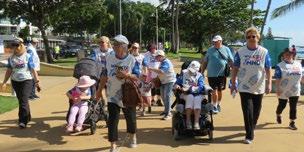
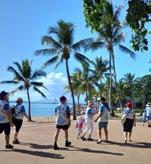
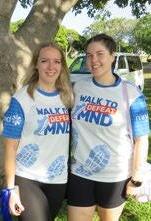
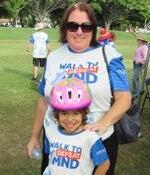
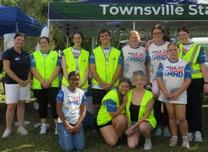
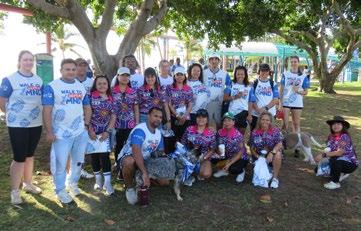
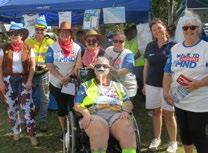
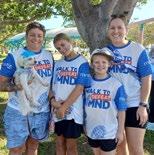
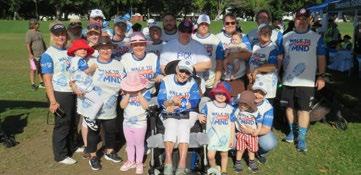
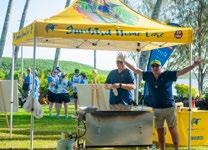
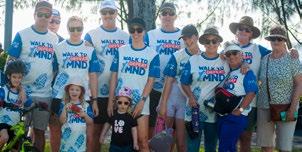
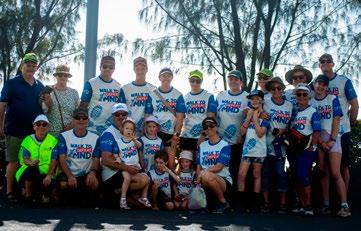
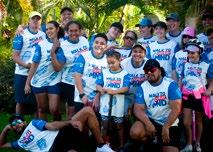
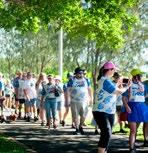
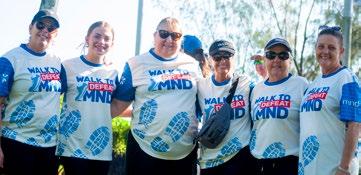
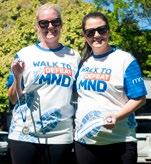
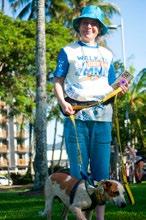
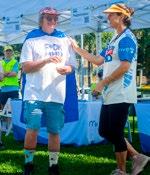
CAIRNS
TOWNSVILLE
We are continually inspired by the generosity, creativity, and dedication shown by individuals and groups in our community. Here’s a look at some of the amazing recent efforts from our community fundraisers…
A huge thank you to the wonderful residents at Oak Tree Retirement Village Toowoomba, who recently hosted a beautiful High Tea for MND. The event raised just over $6,000, and it was a heartwarming day of connection, care, and community spirit.
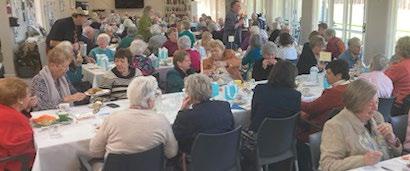
A massive shoutout to the Ipswich Eagles, one of our amazing annual community fundraising groups! In June, they held two different events and raised a combined total of over $4,300.
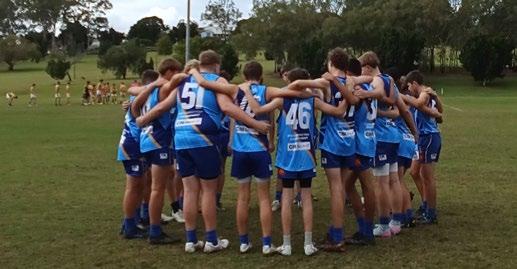
On Sunday, July 20, the Runaway Junior Rugby Leagues Club hosted the very first MND Round Long Lunch and Game Day — and it was an unforgettable occasion. Thanks to the generosity of everyone who came along, we were able to raise nearly $40,000. This special day featured powerful speeches, laughter, community connection, and plenty of footy spirit. A very special thank you to MC Scott Sattler, and guest speakers Jeremy Smith, Brad Meyers, Nathan Friend, and Craig Greenhill for generously sharing their time and stories.
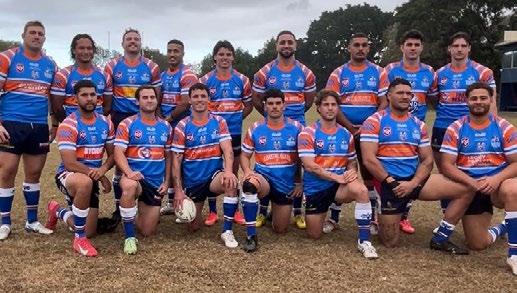

For the second year running, Major Infrastructure Projects (MIP) hosted a Morning Tea for MND, bringing together colleagues and friends in support of our cause. Thanks to the generosity of everyone in their building, the event raised over $2,000.
A round of applause for our two superstar fundraisers Cameron and Ruby, who took part in this year’s Gold Coast Marathon in support of MND Queensland. Cameron raised $2,751 and Ruby raised $1,253 — what an incredible achievement! Whether you’re a casual jogger or seasoned runner, we encourage anyone looking for their next challenge to consider dedicating a race to MND awareness and fundraising.
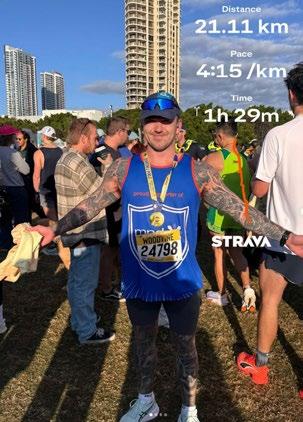
A huge shout out to Luka and his five friends, who set out to complete a challenging six-day trek on the Larapinta Trail in the Northern Territory. While an injury meant Luka couldn’t complete the full hike, his dedication never wavered — and he raised an outstanding $27,251!
For the second consecutive year, the Palm Beach Currumbin Rugby Union Club – Alleygators held their Old Boys Day MND Fundraiser, honouring one of their own, Raymond Todd. The event was filled with camaraderie, support, and a strong sense of purpose. They were able to raise over $2,700.
We are incredibly grateful to everyone involved in putting on these community fundraisers, thank you all.
Do you want to get involved? Every event, big or small, contributes to improving the lives of those affected by MND. Whether you’re keen to host a morning tea, organise a sporting event, or take part in a challenge like a marathon or trek — we’d love to support you on your fundraising journey. Get in touch with our Community Fundraising Coordinator, Mikhayla Barr to find out how you can start your own fundraiser. Learn more at www.mndqld.org.au or call 07 3372 9004

CORNFLOWERS & BUTTERFLIES FOR GLOBAL MND DAY
On MND Global Awareness Day, the Mt Coot-tha Botanic Gardens blossomed with community spirit during Cornflowers and Butterflies for MND — a meaningful tribute to those affected by Motor Neurone Disease.
Around 100 people joined us for the morning and planted cornflowers, the global symbol of hope for MND, each representing a name, memory, or message. Butterflies were released as symbols of love, support, and courage — rising in honour of both those living with MND and those who have passed.
Live music added warmth to the gathering, creating a welcoming space for reflection, connection, and celebration.
Thank you to everyone who joined and contributed to this heartfelt event. Your presence turned a day of awareness into a celebration of resilience, compassion, and hope. Together, we remember, we honour, and we stand united with those affected by MND.
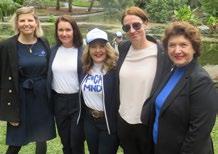
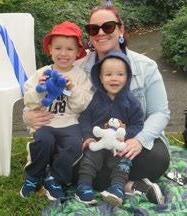
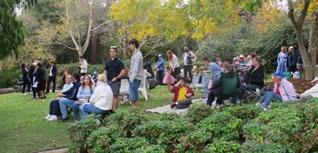
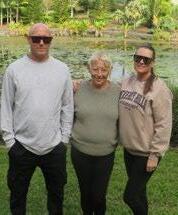
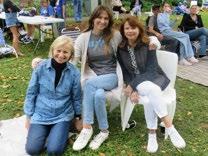
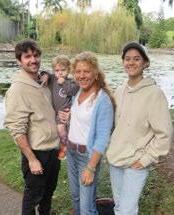
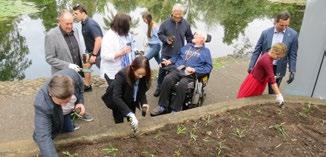
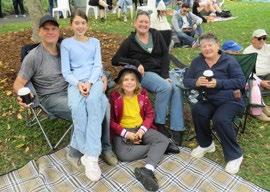
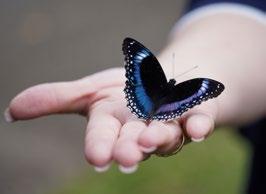
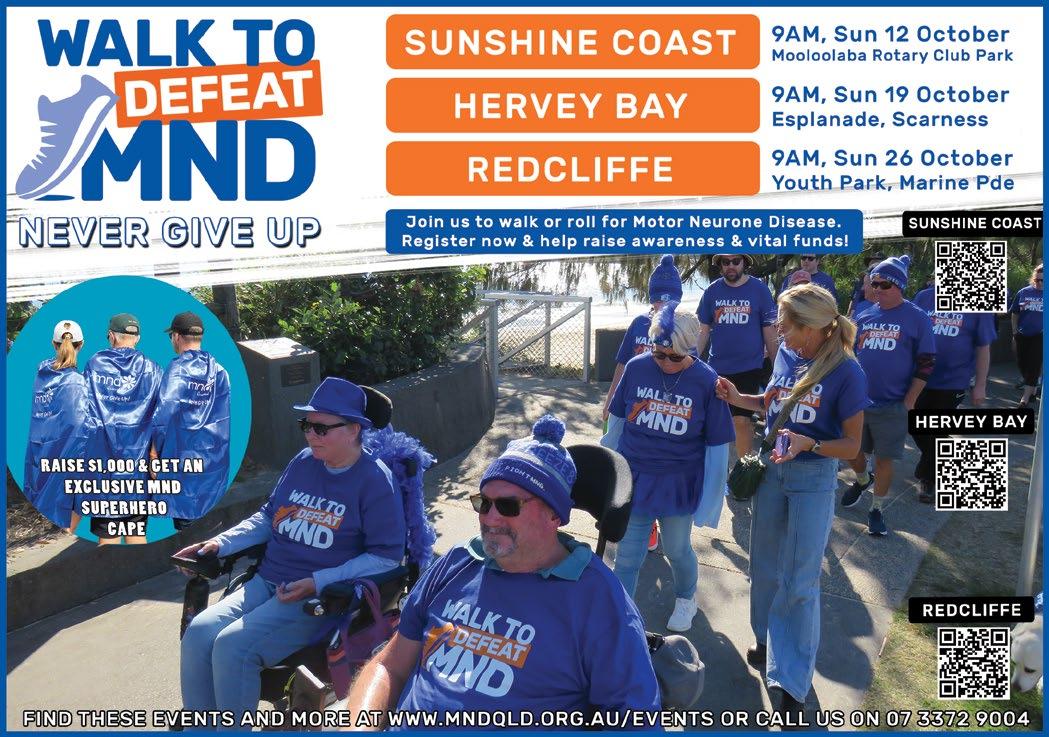
When did you join MND Queensland, and what inspired you to work with us?
I joined MND Queensland at the beginning of this year. Working with people with conditions like MND has been a part of my career now since 2004. I jumped at the chance to manage the Communicating Point Project, where we are working with people with MND to create a useful, practical source of information to support speech difficulties that are commonly encountered.
Before joining MND Queensland, did you know much about MND? What are some of the biggest insights or lessons you’ve learned?
Over the past 21 years, I’ve learnt so much about treating MND, as a Speech Pathologist. But the biggest lesson I’ve learned was from Shirley, back in 2001. She was the first person that I worked with from diagnosis until her passing – through every stage as she lost her ability to communicate and swallow. Shirley’s grace, courage and commitment to connection with her family and community truly shaped me as a young professional and changed me personally.
Since then, I’ve been inspired countless times working alongside people with MND as they show incredible grit and face whatever comes. It has been the greatest honour of my career, to assist where I can.
You’re involved in an interesting project. Can you briefly explain what you’re doing?
The project that I am working on, called ‘Communicating Point’, is an innovative co-designed project aimed at producing a valuable resource to support communication for people with MND. That means that people with MND have assisted us in assessing available resources, and how they could be improved. The results show us that we need to build a locally focussed webpage with practical information and downloadable resources that give information about MND and speech difficulties, as well as how to support communication.
What is the importance of this project for people with MND?
Until now, it has been hard to find information online about speech and MND that covers all stages of dysarthria. It has also been hard to know if you can trust the information. It is often from other countries and doesn’t relate specifically to the Australian context. It also often assumes that people have direct access to Speech Pathologists and other Allied Health professionals. Sometimes in rural and remote areas of Australia, this is not the case.
With this new resource, co-designed with people with MND, their carers, Speech Pathologists, and
university researchers, we aim to provide a powerful tool that people can use to inform themselves and support their communication.

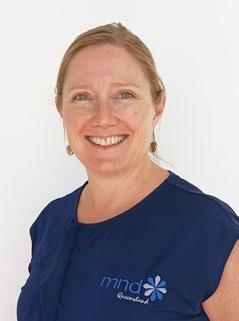
Technology can play a big role in communication support, are there any tools or innovations you find especially helpful for people living with MND? My biggest hint is to use what you have. Almost every person in Australia has a smart phone or tablet. There are free or inexpensive apps that you can use to support you when speech is difficult. But you can also use photographs, typing, and in many cases the inbuilt accessibility features of your phone. My other big tip is to use the internet to your advantage. There is information out there, and you can partner with a Speech Pathologist to future proof your communication with innovations like voice banking – all through telehealth. All communication supports (AAC) take time to learn – get in touch with your Speech Pathologist to get this started before you really need it.
How do you work with other members of the MND Queensland team to provide a multidisciplinary approach to care?
I work closely with our occupational therapists, physiotherapists and allied health assistant to deliver coordinated, person-centred care for people with MND. My focus is on maintaining and supporting communication, swallowing and secretion management — from early intervention and AAC planning to practical strategies for daily interactions — while integrating input from the team to address mobility, positioning, equipment needs, and fatigue management so that communication and eating solutions are functional across all aspects of care.
Working in this field can be emotionally demanding. How do you take care of your own wellbeing while supporting others? I get back to nature and family – especially when I can combine the two and go sailing on Moreton Bay. We often have three generations out at once!
Finally, is there anything else you’d like to share with our readers?
Communication difficulties don’t mean an end to your identity or your connection with the people you love. There is so much innovation (both high and low tech) out there that can support you. The earlier you can get in touch with your speechie the better!
Are you looking for information, support or a way to advocate and raise funds for MND? We have educational workshops, support group meetings & community events for you to get involved in. For more information visit www.mndqld.org.au/events, scan the QR code or call us on

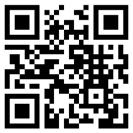
Bribie Island Support Group Bribie Is. Community Arts Centre, 191 Sunderland Dr 10:30AM 2 Oct
Brisbane North Support Group Sands Social, 50 Keogh St, Sandgate 10:30AM 9 Sep, 18 Nov
Brisbane South Support Group Easts Leagues Club, 40 Main Ave, Coorparoo 10:30AM 21 Oct
Bundaberg Support Group Cafe 1928, 6 Mount Perry Rd 10:30AM 9 Sep, 7 Oct, 16 Dec
Cairns Support Group Oaks and Vine, 59/63 Esplanade, Cairns 10:30AM 6 Oct, 15 Dec
Gold Coast Support Group Burleigh Bears Leagues Club, 80 Pacific Ave, Miami 10:00AM 30 Sep, 28 Oct, 25 Nov, 16 Dec
Hervey Bay Support Group Hervey Bay Golf Club, Tooth St & Old Maryborough Rd 10:30AM 18 Nov
Online MND Support Group Online, via Microsoft Teams 10:00AM 11 Sep, 25 Sep, 9 Oct, 23 Oct, 6 Nov, 20 Nov, 4 Dec, 18 Dec
Sunshine Coast Support Group Maroochy RSL, 105 Memorial Ave, Maroochydore 10:30AM 4 Sep, 6 Nov
Toowoomba Support Group City Golf Club Toowoomba
Townsville Support Group Von Stieglitz Room, Riverway Library, Thuringowa 10:00AM 17 Sep, 26 Nov
CARERS SUPPORT GROUPS - FREE
Kitchen Table - Conversations for Carers Online via Microsoft Teams 11AM & 6:30PM 1 Oct, 29 Oct,
National MND Health Professional Webinar Series Online - Register at https://bit.ly/4hnT3o6
Handling
or
Spring Appeal - Help keep MND Queensland on the move
Every day, our team delivers vital equipment and visits families at home to provide the support they need. To keep us mobile and responsive, we urgently need to replace our ageing delivery van and expand our fleet. Can you or someone you know help by donating? Donate now by visiting the website, scanning this code or calling us on 07 3372 9004. www.mndqld.org.au/campaign/110/spring2025
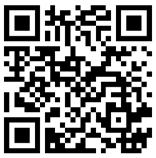
Send back to: MND Queensland, PO Box 470, INALA QLD 4077. If you are donating by card you can call us on 07 3372 9004 or visit www.mndqld.org.au/donations
Please send me information about leaving a gift in my Will
Tick here and return if you no longer wish to receive newsletters from MND Queensland Motor Neurone Disease Association of Queensland Incorporated. ABN: 75 990 922 939
